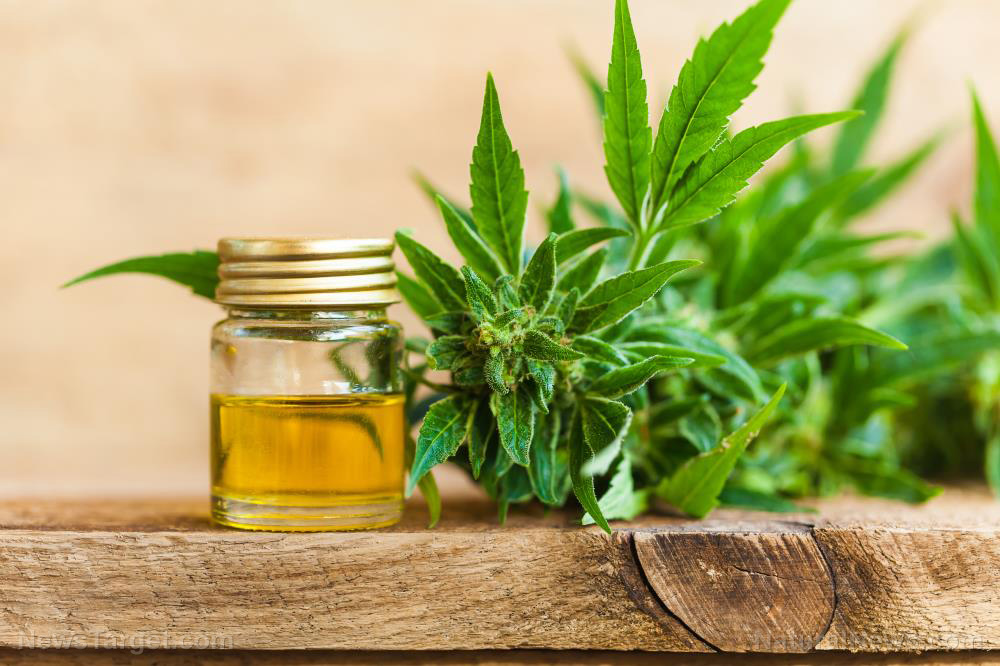A peppermint for pain? Peppermint oil can help reduce pain caused by irritable bowel syndrome
05/02/2020 / By Divina Ramirez

Irritable bowel syndrome (IBS) is a lifelong condition that can be very difficult to deal with on a daily basis. Fortunately, a recent study has found that peppermint oil can be a safe and effective remedy for IBS. Published in the journal BMC Complementary and Alternative Medicine, the research revealed that peppermint oil has antimicrobial, anti-inflammatory and antioxidant activities, all of which are relevant for the treatment of IBS.
IBS: Symptoms, causes and treatment
IBS is a common gastrointestinal disorder that affects the large intestine. It is typically marked by cramps, abdominal pain, constipation and diarrhea. Also known as irritable colon or spastic colitis, this syndrome is not related to other bowel disorders or inflammatory bowel disease. IBS is a group of gastrointestinal symptoms that occur together.
Although there are several studies on IBS, little is known about its exact cause. Some studies suggest that IBS is caused by a bacterial infection while others claim that IBS tends to occur in people with highly sensitive colons, gastrointestinal tracts or immune systems.
Whichever the case, symptoms of IBS are fairly easy to manage but require long-term treatment. Most people with IBS use remedies to cope with its symptoms each day, but IBS symptoms can vary in terms of severity and duration from person to person.
IBS treatment is complicated by the fact that its symptoms tend to come and go based on certain factors, such as diet, stress, physical activity and other gastrointestinal problems. Moreover, many natural remedies like fiber-rich foods, water and regular exercise are only able to provide temporary relief at best. (Related: Glutamine can help soothe irritable bowel syndrome.)
Peppermint oil can provide pain relief for people with IBS
A team of researchers from the U.S. and Australia found that peppermint oil has intrinsic properties that benefit individuals with IBS.
Peppermint oil is an abundant source of monoterpene compounds that possess potent anti-fungal, antibacterial, antioxidant, anti-inflammatory and anesthetic properties. Peppermint oil also contains L-menthol, a compound that acts as a natural antispasmodic agent to ease abdominal cramps.
To determine the effects of peppermint oil on IBS symptoms, the researchers reviewed randomized controlled trials (RCTs) that used enteric-coated peppermint oil capsules to treat IBS.
They did not include RCTs with a treatment duration of less than two weeks. They also excluded trials that featured participants with organic illnesses. They selected 12 studies that involved a total of 835 participants for their meta-analysis.
The researchers found evidence that peppermint oil can be an effective natural remedy for IBS. Six studies, in particular, reported that peppermint oil was able to treat abdominal pain.
However, the researchers also found that peppermint oil caused minor side effects, although most were short-lived and did not negatively affect the treatment of IBS symptoms. Some of the reported side effects include heartburn, dryness of the mouth, peppermint aftertaste, rashes, dizziness, headaches and loss of appetite.
When the researchers assessed the overall quality of the reported results, they found a global improvement in IBS symptoms due to the effectiveness of peppermint oil as a natural treatment.
They therefore concluded that peppermint oil is a safe and effective natural medicine for the long-term management of IBS symptoms.
For more stories on natural painkillers and alternative treatments to digestive problems, visit NaturalCures.news.
Sources include:
Tagged Under: alternative medicine, digestive health, essential oils, gastrointestinal disorders, herbal medicine, Herbs, IBS, irritable bowel syndrome, natural cures, natural medicine, Naturopathy, pain relief, Peppermint Oil, remedies, research
RECENT NEWS & ARTICLES
Nutraceuticals.News is a fact-based public education website published by Nutraceuticals News Features, LLC.
All content copyright © 2018 by Nutraceuticals News Features, LLC.
Contact Us with Tips or Corrections
All trademarks, registered trademarks and servicemarks mentioned on this site are the property of their respective owners.



















